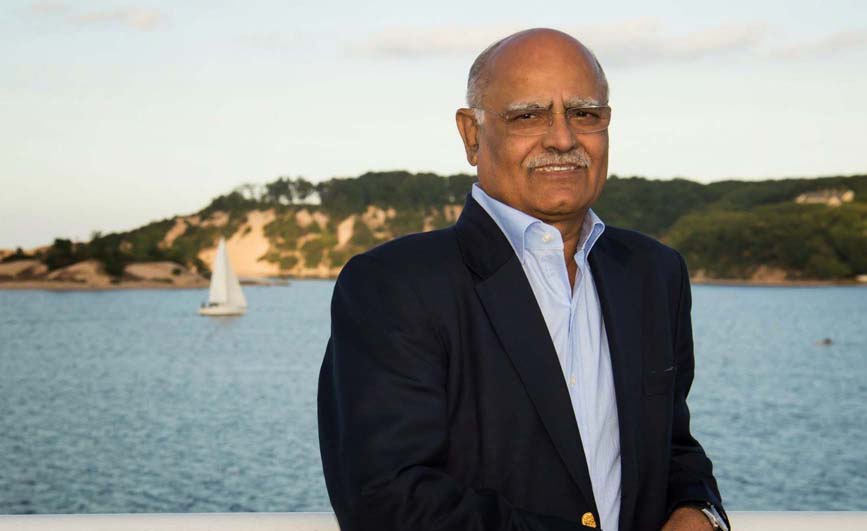Only Way Messenger Won't be Shot is if the Message Delivered is Truthful
The message is increasingly becoming irrelevant. Now messengers are
targets. Political parties will welcome any herald as long as the words
brought are the ones that cheer. The political narrative of the General
Elections has become a saga of ugly confrontation. Now leaders not only
insist on choosing the messenger, they also dictate the message. Arvind
Kejriwal, the progenitor of a novel politics of change, has set a
precedent by announcing his intention to send all renitent media to
jail. His anger may have been well placed. After all he is new to
politics and has also been a media darling, unused to improbation. Most
of us saw little wrong in his style or substance because he was fighting
to engender a clean and transparent establishment. The press gave him
maximum exposure before and after he joined politics. He and his party
were cynosures of the media’s adoring eyes. Once Kejriwal stepped into
active politics, each and every move came under the media’s unforgiving
lens. As much as his questioning of pedestal pendragons were given
prominence, queries raised about his party also got equal billing. The
same yardsticks applied to probing his adversaries were used on his
effervescently successful political outfit too.

But the gap between conduct of crusader Kejriwal and the rest of the
political class seems be diminishing fast. As leaders acquire clout,
acceptability and legitimacy, they start behaving like monarchs. They
forget arrogance brings agony. Once Kejriwal became part of the system,
his party adopted the same tactics as mainline parties of intimidating
critics. His mission may be diametrically different, but his methods are
the same as of his opponents. He perhaps believes that if other
political outfits can dictate terms to the media, why can’t he with a
clean track record. The media is now confronted with a situation in
which the establishment has forged a coalition to defame, deter and
decide its survival.
With the enormous growth of the media
forcing it to adopt the perilous path of competitive journalism, parties
have acquired the monopoly in deciding content of not only the
electronic media but also of print. They now decide which anchor or club
of reporters should be obliged. They also dictate kind of analysts to
be invited for discussions. Should any channel exhibit defiance, they
would spread the word that it should be boycotted. Moreover, parties
have made it almost impossible for journalists to cover events unless
the content provided by them is used without raising questions—a trend
started by BJP’s PM candidate whose team understood the economic
weakness of the Indian media. The BJP was the first to provide
controlled feeds of rallies addressed by Modi to be telecast live for
hours. For months, viewers were not informed that the ‘live’ footage was
in reality provided by the party. When Rahul Gandhi learnt about the
practice, a copycat Congress hired dedicated camera teams and asked the
channels to carry footage the party provided. Even a regional leader
like Mulayam Singh Yadav could persuade the electronic media to
broadcast his rallies live using a captive system. But Kejriwal’s
meetings received coverage without a penny being spent. Thus, by laying
out their terms, political parties escaped the usual media scrutiny on
their functioning.
Earlier, interviews of those who were herded to
the rallies would be carried; empty spaces in the audience shown; and
the focus would be on the hidden aspects of choreographed election
events. Now the spotlight is only on the leader’s speech followed by a
debate by a panel that includes collaborative columnists. Kejriwal
perhaps has a point when he alleges that the media has become
uncharitable to him because he is questioning the role of tycoons in the
elections and the influence of big business on media coverage. For
decades, the Indian media has been quite charitable towards India Inc.
Barring a few exceptions, the media has abjured following corporate
shenanigans and malpractices, in contrast to the vigour it brings to any
dissection of the political system. But Kejriwal and supporters feel
journalists have been partial towards select leaders; at the same time
running a campaign against political parties.
Most newspapers and
channels treat some leaders as sacrosanct compared to others even in the
same party, and have unknowingly carried stories fed by them without
questioning their intentions. According to media researchers, three
individuals—Narendra Modi, Arvind Kejriwal and Rahul Gandhi—have been
given over 60 per cent prime time coverage by channels and over 50 per
cent space meant for political news in the print media. According to a
TV analyst, for the past seven months, Modi directly or indirectly has
grabbed over 600 hours of TV space, against over 450 hours by Kejriwal
and less than 300 hours by Rahul. Interestingly, the media has given
extensive coverage to AAP’s second-rung leaders and a few BJP satraps
while ignoring stalwarts like Rajnath Singh, Sushma Swaraj and Nitin
Gadkari. In spite of getting such extensive publicity, none of them
have spared the media. If Kejriwal has now chosen it as his latest
target, the media must also share the blame. The Indian media has
survived many sinister attacks on its independence. It will overcome
many more if it places less emphasis on bytes, speeches, selective
opinion, collusive debates and promoting class leaders at the cost of
grassroots leaders. The messenger, too, would then survive the might of
any political nemesis if the message delivered is truthful, irrespective
of colours and contours.
prabhuchawla@newindianexpress.com; Follow me on Twitter @PrabhuChawla

No comments:
Post a Comment